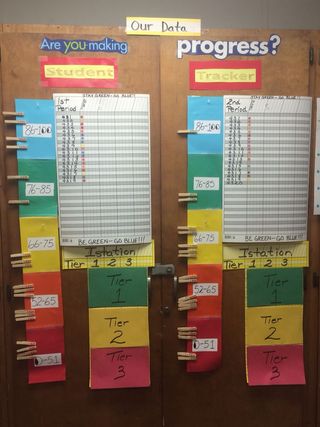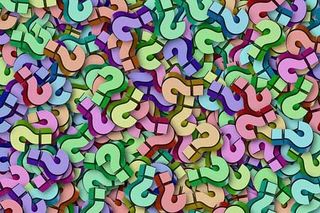I say a lot of things on Twitter. Most tweets get very little attention and rightly so. Occasionally I manage a lucid thought that seems to resonate more than I anticipated. Sunday I tweeted:
So I thought I’d provide a bit more context to explain this idea.
My journey into assessment and changing the narrative has been going on for over a decade. Specifically dealing with the question, “Who owns the assessment?” It shouldn’t be about what satisfies me but what aids the learner in getting the most from the experience.
For the most part, we’ve over complicated assessment. Our data-obsessed world and education system continues to look for silver bullets, accountability, and/or justification of our practices. More tools mean more ways to try and measure learning. My mantra remains:

You might not be able to measure learning, but you can document it.
So assessment and evaluation remain elements of my teaching that I’m always tweaking and ultimately empowering the learners as much as possible. It’s why they primarily grade themselves. By the way, if your argument is that students won’t learn without a grade, check out Brett Clark’s short post on that topic.
The three questions I ask as a summation of a course is to simplify but also focus on the essence of any learning. Whenever I design an assignment or assessment, it’s important to me that they be applicable and valuable for the learner. It’s why I want them to tell me if they don’t find something valuable. That’s part of my role as designer, to continue to make things as relevant and useful as possible. These questions, I hope achieve that goal. For the current course I’m teaching, I’ve added a short descriptor.
What do I know now that I didn’t know before this course? Perhaps a list of 3-5 key understandings or ideas
What can I do now I couldn’t do before? Think more about skills, techniques, work habits, etc
Why does it matter? How will this make a difference in the future?
Some folks asked if they could use these questions. Of course, no need to ask. I imagine you might need to add your own descriptors or modify these a bit. I’m never sure if this approach would work in any context. What about Mathematics or Science? How would you use these in those contexts or are they just too simple?
Finally, I’d love to know your thoughts on assessment and evaluation. Do you think we over complicate it? What can you do within your constraints to simplify it or do you think we need to make it more complicated?
cross-posted at ideasandthoughts.org
Dean Shareski is the Community Manager of the Canadian DEN (Discovery Educators Network) and lecturer for the University of Regina. With 24 years of experience as a K12 educator and consultant, he specializes in the use of technology in the classroom. Read more at ideasandthoughts.org.
Disclaimer: This weblog contains the opinions and ideas of Dean Shareski. While there may be references to my work and content which relates directly to my work, the ideas are mine alone and are not necessarily shared by my employer.

